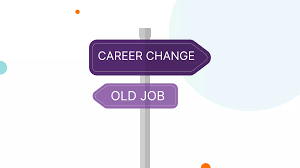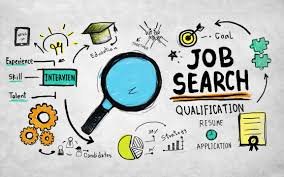
Career Switching in 2025: Learn Skills for the Jobs of Tomorrow
Career Switching: Learning for the Jobs of Tomorrow
In today’s fast-paced world, career trajectories are no longer linear. Technological advancements, shifting industries, and evolving job roles mean that what was once a stable career path may now require continuous adaptation. The rise of AI, automation, and digital transformation is creating opportunities in fields that didn’t exist a decade ago, while traditional roles are undergoing drastic transformations. For many professionals, this reality is prompting a major question: how do I prepare for the jobs of tomorrow?
Career switching has become not just a possibility, but a necessity for those looking to stay relevant and competitive. It involves rethinking your skill set, embracing continuous learning, and strategically positioning yourself in emerging industries. While the idea of leaving a familiar career may seem daunting, it’s increasingly the route to long-term growth, satisfaction, and resilience in a rapidly changing job market.
Why Career Switching is Becoming Essential
Several factors are driving the need for career switching:
-
Technological Disruption: Automation, AI, and robotics are transforming industries. Jobs in manufacturing, administration, and even some IT roles are becoming redundant, while demand for skills in AI, data analytics, cloud computing, and cybersecurity is skyrocketing.
-
Economic Shifts: Globalization and economic fluctuations can render some industries less viable. Career switching allows professionals to pivot to sectors with higher growth potential.
-
Changing Interests and Aspirations: Personal growth and life experiences often lead individuals to seek more meaningful or flexible careers. The rise of remote work has made it easier to pursue unconventional career paths.
-
Longevity of Careers: With people living longer and retiring later, career spans are stretching. Many may need to reinvent themselves midway to maintain job satisfaction and financial stability.
In short, career switching is no longer just a bold move—it’s often a strategic decision for long-term professional survival.
Steps to Prepare for a Career Switch
Switching careers successfully involves planning, skill acquisition, and adaptability. Here’s a roadmap to guide the process:
1. Self-Assessment
Understanding your strengths, interests, and values is the first step. Ask yourself:
-
What skills do I enjoy using?
-
Which industries excite me?
-
What work environment suits me best?
Tools like personality assessments, career aptitude tests, or professional coaching can provide clarity.
2. Research Emerging Industries
Identify industries and roles with strong future growth potential. Some of the fastest-growing areas include:
-
Artificial Intelligence & Machine Learning: AI is transforming every industry from healthcare to finance. Roles in AI development, machine learning engineering, and AI ethics are increasingly in demand.
-
Data Science & Analytics: Businesses rely on data-driven decisions. Skills in data analysis, visualization, and interpretation are crucial.
-
Digital Marketing & Content Creation: With the explosion of online businesses, digital marketing experts, content strategists, and SEO specialists are thriving.
-
Renewable Energy & Sustainability: As the world transitions to cleaner energy, roles in renewable energy engineering, sustainable supply chain management, and environmental consulting are expanding.
-
Healthcare & Biotechnology: Advancements in biotechnology, telemedicine, and healthcare technology are creating new career pathways.
3. Upskill Strategically
Once you’ve identified the industry and role, focus on learning the necessary skills. Options include:
-
Online Courses & Certifications: Platforms like Coursera, Udemy, and LinkedIn Learning offer industry-relevant courses.
-
Bootcamps: Intensive training programs can accelerate learning in areas like coding, data analytics, or digital marketing.
-
Higher Education: A formal degree or diploma in a new field may be required for certain technical roles.
-
On-the-Job Learning: Freelancing, internships, or volunteering in your target field provides practical experience.
The key is to prioritize skills that are in demand and align with your long-term career goals.
4. Build a Network in the New Industry
Networking is critical when switching careers. Attend industry conferences, join professional associations, and engage with online communities. Networking can provide insights into industry trends, mentorship opportunities, and even job leads.
5. Craft a Transition Plan
A well-thought-out transition plan can make the shift smoother. Consider:
-
Financial planning to handle a period of lower income or retraining costs.
-
Identifying transferable skills that your current career provides.
-
Setting clear milestones and timelines for skill acquisition, networking, and job applications.
6. Embrace a Growth Mindset
Career switching requires resilience and adaptability. Accept that mistakes, failures, and learning curves are part of the journey. A growth mindset will help you stay motivated and continuously evolve.
Success Stories
Career switching is not just a theoretical concept—it’s happening worldwide. Consider the following examples:
-
A marketing professional who transitioned into data analytics after completing a certification in Python and SQL.
-
An engineer who moved into product management by leveraging technical expertise and completing an MBA.
-
A teacher who pivoted to UX/UI design through online bootcamps and freelance projects.
These stories highlight that, with dedication, strategic planning, and continuous learning, career reinvention is achievable at any stage of life.
Future Outlook
The jobs of tomorrow will demand a combination of technical skills, critical thinking, creativity, and emotional intelligence. Automation may handle repetitive tasks, but uniquely human skills—like problem-solving, empathy, and innovation—will remain valuable.
Career switching is less about abandoning the past and more about evolving with the future. By proactively learning new skills and embracing change, professionals can not only survive but thrive in tomorrow’s workforce.
FAQs
1. At what age is it ideal to switch careers?
There’s no specific age for a career switch. Professionals can pivot at any stage of life. What matters more is readiness to learn, adapt, and take calculated risks. Many individuals successfully switch careers in their 30s, 40s, and even 50s.
2. How long does it take to switch careers?
The timeline varies depending on the field, prior experience, and learning pace. Some people may transition in a few months through intensive courses or certifications, while others may take a few years to gain the necessary skills and experience.
3. Are career switches risky?
Every career change involves some risk, particularly in terms of income, job security, and comfort zone. However, risks can be minimized through research, financial planning, networking, and gradual transition strategies.
4. Can my current skills be transferred to a new career?
Absolutely. Many soft skills—such as communication, project management, leadership, and analytical thinking—are highly transferable across industries. Even technical skills can sometimes be adapted to new roles.
5. What industries are most promising for career switchers?
High-growth industries include AI & machine learning, data science, cybersecurity, digital marketing, renewable energy, healthcare technology, and biotechnology. Emerging roles often combine technology with creative, analytical, or problem-solving skills.
Conclusion
Career switching is not a sign of failure; it’s a proactive step toward relevance, growth, and fulfillment. By understanding emerging trends, upskilling strategically, leveraging transferable skills, and embracing a growth mindset, professionals can navigate the complexities of tomorrow’s job market with confidence.
The future belongs to lifelong learners—those willing to evolve, adapt, and embrace opportunities beyond traditional boundaries. For anyone contemplating a career change, the message is clear: the best time to prepare for the jobs of tomorrow is today.




